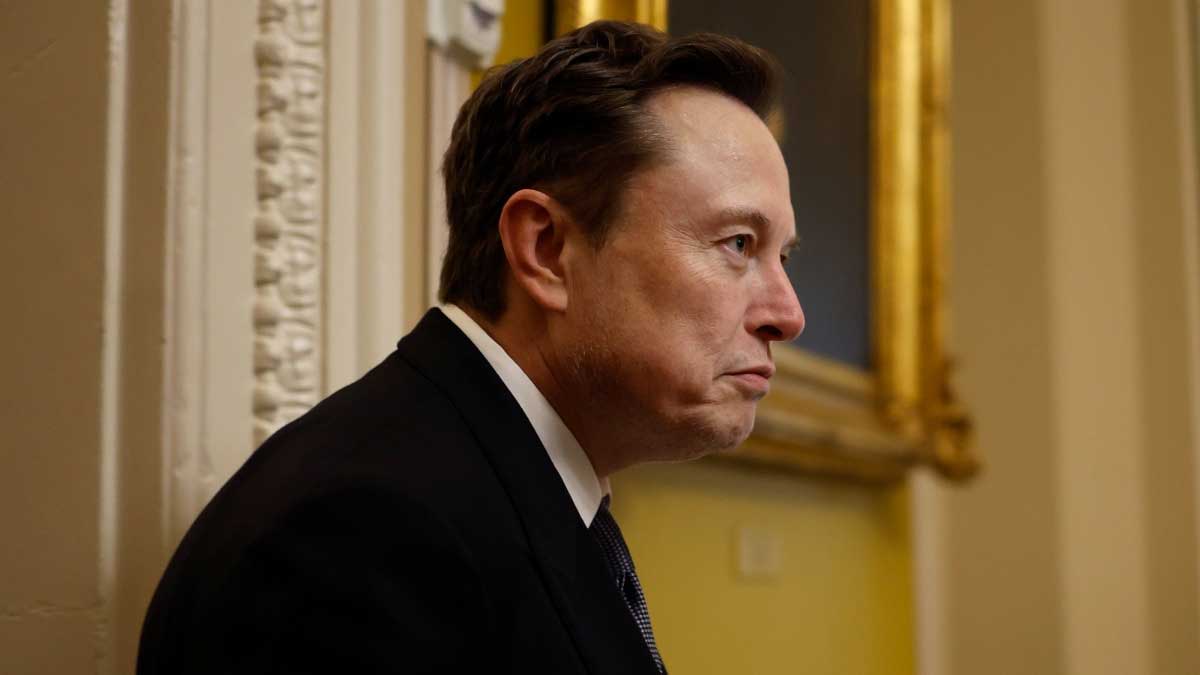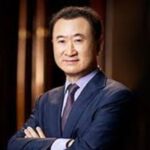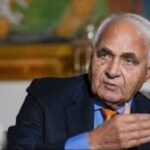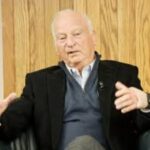- Home
- Billionaires
- Investing Newsletters
- 193CC 1000
- Article Layout 2
- Article Layout 3
- Article Layout 4
- Article Layout 5
- Article Layout 6
- Article Layout 7
- Article Layout 8
- Article Layout 9
- Article Layout 10
- Article Layout 11
- Article Layout 12
- Article Layout 13
- Article Layout 14
- Article Sidebar
- Post Format
- pages
- Archive Layouts
- Post Gallery
- Post Video Background
- Post Review
- Sponsored Post
- Leadership
- Business
- Money
- Small Business
- Innovation
- Shop
Recent Posts
H-1B Visa Debate Splits Trump Allies and Silicon Valley

The debate over H-1B visas has once again become a contentious issue, creating divisions among President-elect Donald Trump’s allies as he prepares for his second term. The visa program, which allows temporary work permits for highly skilled foreign workers in specialized fields, has long been a flashpoint in U.S. immigration policy. Prominent tech figures such as Elon Musk and Vivek Ramaswamy have emerged as vocal supporters of the program, arguing its necessity for maintaining competitiveness in industries like engineering and technology. However, this stance has sparked criticism from right-wing voices who see the policy as a threat to American jobs and domestic workforce priorities.
H-1B visas are issued to foreign workers in professions requiring “highly specialized knowledge,” with a focus on fields like science, technology, engineering, and mathematics (STEM). However, their reach extends beyond technology to areas such as medicine, education, business, and the arts. Each fiscal year, 65,000 H-1B visas are issued, with an additional 20,000 allocated to workers holding advanced degrees from U.S. universities. In 2023, over 700,000 individuals held H-1B visas, which are valid for three years and can be extended up to six years.
During Trump’s first term, the program faced temporary suspension as part of his administration’s broader hardline stance on immigration. In contrast, President Joe Biden’s administration took steps to enhance the program, streamlining the application process and giving employers greater flexibility in hiring foreign workers. With Trump assembling his team for a second term, his position on H-1B visas remains unclear, putting him at a crossroads between tech leaders advocating for skilled immigration and allies critical of the policy.
The appointment of venture capitalist Sriram Krishnan as Trump’s senior policy advisor on artificial intelligence has further intensified the divide. Krishnan’s support for skilled immigration, including removing country caps on green cards, has drawn sharp criticism from far-right activists. Laura Loomer described his appointment as “deeply disturbing,” while commentator Mike Cernovich accused tech companies of exacerbating labor issues and using foreign workers to address the fallout of their own practices. In response, Musk and other tech leaders have publicly defended the H-1B program, emphasizing the need for highly skilled talent to drive innovation and economic growth.
Elon Musk has argued that there is a critical shortage of skilled engineers in the U.S., making the recruitment of foreign talent through H-1B visas essential. He likened the practice to the NBA recruiting international players to strengthen teams predominantly composed of Americans. Vivek Ramaswamy echoed this view, criticizing a cultural tendency to venerate mediocrity over excellence and advocating for a meritocratic approach to workforce recruitment. David Sacks, another key figure in Trump’s circle, also voiced support for H-1B visas, calling out what he described as a “baseless witch hunt” against Krishnan and urging a focus on addressing illegal immigration rather than targeting employment-based visas.
Silicon Valley’s growing influence in Trump’s inner circle has been evident as tech leaders increasingly align themselves with the president-elect. Musk, who became a prominent supporter of Trump during the election, was rewarded with a leadership role in the new “Department of Government Efficiency” alongside Ramaswamy. Trump’s advisory team also includes high-profile figures like Oracle CEO Larry Ellison and venture capitalist Marc Andreessen, reflecting the tech industry’s significant presence in his administration. This alignment has raised concerns about the influence of tech billionaires on U.S. policy, with Musk playing an active role in Trump’s interactions with world leaders and legislative negotiations.
As Trump prepares for his second term, the future of H-1B visas remains uncertain. While his first administration prioritized restrictions on skilled immigration, the advocacy of figures like Musk and Ramaswamy could influence him to adopt a more favorable stance toward the program. Trump has emphasized plans to crack down on undocumented immigration, including mass deportations, but his approach to legal pathways like H-1B visas remains unclear. The issue underscores broader tensions within Trump’s coalition, where competing priorities on immigration and workforce development collide.
H-1B visas symbolize the broader challenges of balancing the needs of a globalized economy with concerns about domestic job security. For Trump, the debate presents a complex dilemma: appease his tech allies who see the visas as critical for maintaining U.S. innovation or cater to his political base, which views the program with skepticism. The resolution of this debate will have far-reaching implications for U.S. immigration policy and the role of Silicon Valley in shaping the nation’s future.
Recent Posts
Categories
- 193cc Digital Assets2
- 5G1
- Aerospace & Defense48
- AI37
- Arts3
- Banking & Insurance11
- Big Data3
- Billionaires511
- Boats & Planes1
- Business331
- Careers13
- Cars & Bikes76
- CEO Network1
- CFO Network17
- CHRO Network1
- CIO Network1
- Cloud10
- CMO Network18
- Commercial Real Estate7
- Consultant1
- Consumer Tech184
- CxO1
- Cybersecurity69
- Dining1
- Diversity, Equity & Inclusion4
- Education7
- Energy8
- Enterprise Tech29
- Events11
- Fintech1
- Food & Drink2
- Franchises1
- Freelance1
- Future Of Work2
- Games145
- GIG1
- Healthcare79
- Hollywood & Entertainment195
- Houses1
- Innovation43
- Investing2
- Investing Newsletters4
- Leadership65
- Lifestyle11
- Manufacturing1
- Markets20
- Media194
- Mobile phone1
- Money13
- Personal Finance2
- Policy568
- Real Estate1
- Research6
- Retail1
- Retirement1
- Small Business1
- SportsMoney40
- Style & Beauty1
- Success Income1
- Taxes2
- Travel10
- Uncategorized9
- Vices1
- Watches & Jewelry2
- world's billionaires480
Related Articles
Trump Moves $4B Stake in Truth Social Parent, Stock Drops 6%
Donald Trump recently transferred his 57% stake in Trump Media & Technology...
By 193cc Agency CouncilDecember 20, 2024House Rejects Trump-Backed Funding Bill, Shutdown Looms
The U.S. House of Representatives rejected a new government funding bill on...
By 193cc Agency CouncilDecember 20, 2024Trump Named Time’s Person of the Year for Second Time
On Thursday, Time magazine honored Donald Trump as its “Person of the...
By 193cc Agency CouncilDecember 12, 2024Meta Donates $1 Million to Trump’s Inaugural Fund
Meta, the parent company of Facebook and Instagram, has confirmed a $1...
By 193cc Agency CouncilDecember 12, 2024















Leave a comment